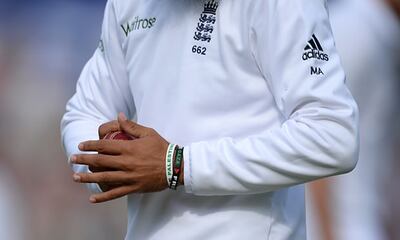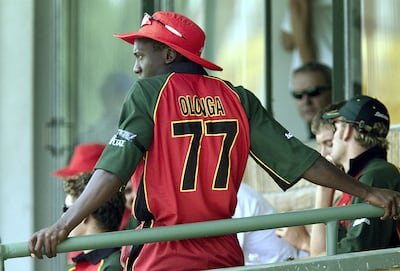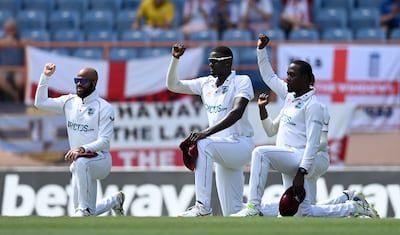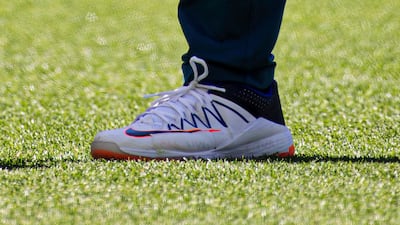Australian batsman Usman Khawaja found himself in the middle of a controversy ahead of Thursday's first Test against Pakistan as he was barred from wearing special shoes in support of Palestinians suffering in Gaza.
Khawaja had "freedom is a human right" and "all lives are equal" written on his shoes in the colours of the Palestinian flag during training ahead of the opening Test in Perth, with the intention of wearing them during the match.
Khawaja insists it was a humanitarian appeal and not a political message – which is barred by the International Cricket Council.
"Is freedom not for everyone? Are all lives not equal?" Khawaja said in an emotional video message on social media.
"To me personally it doesn't matter what race, religion or culture you are. I'm just speaking up for those who don't have a voice.
"The ICC have told me that I can't wear my shoes on field because they believe it's a political statement under their guidelines. I don't believe it is so – it's a humanitarian appeal," he added.
"I will respect their view and decision but I will fight it and seek to gain approval."
Keeping sports and politics separate is a difficult task, and sometimes one spills into the other. Below are some instances where the lines have blurred in cricket.
Moeen Ali

The England all-rounder was barred from wearing wristbands bearing the slogans “Save Gaza” and “Free Palestine” during a Test against India in Southampton in 2014.
Moeen was informed that he was free to make political statements in his personal life, just not on a cricket field.
Mohammad Rizwan
During the recent ODI World Cup in India, Pakistan wicketkeeper Mohammad Rizwan dedicated his team’s win over Sri Lanka to “our brothers and sisters in Gaza”.
He posted the message on social media and that was within the rules, as the ICC’s directives are restricted to matches and clothing.
Andy Flower and Henry Olonga

Zimbabwe cricketers Andy Flower and Henry Olonga took part in a black armband protest during the 2003 World Cup. The duo decided to wear armbands to "mourn the death of democracy in Zimbabwe".
"We have decided that we will each wear a black armband for the duration of the World Cup," the duo said in a statement ahead of their match against Namibia.
"In doing so we are mourning the death of democracy in our beloved Zimbabwe. In doing so we are making a silent plea to those responsible to stop the abuse of human rights in Zimbabwe. In doing so we pray that our small action may help to restore sanity and dignity to our nation."
Both players faced tremendous pressure at home, and later relocated to the UK permanently.
West Indies and BLM

West Indies players started taking the knee as an anti-racism gesture and in support of the "Black Lives Matter" movement from 2020 onwards.
Other teams have also joined the Caribbean players in taking a knee before the start of matches. The West Indies players also wore a "Black Lives Matter" logo on their playing shirts.
The ICC said that they would operate a "common-sense approach to the implementation of regulations" regarding demonstrations of solidarity with the movement, which would be assessed on a "case-by-case basis".
India’s camouflage caps

The Indian cricket team was granted permission to wear camouflage caps during an ODI match against Australia in Ranchi in 2019.
The Indian team paid tribute to the country’s soldiers killed in a terror attack that year, with funds from the match directed to the cause of the fallen soldiers. The move drew strong protests from Pakistan.
MS Dhoni’s army insignia

The International Cricket Council rejected a request from India to allow MS Dhoni to wear a military logo on his gloves at the 2019 World Cup in England. The ICC’s clothing and equipment rules allow only manufacturers’ logos on gloves.
Dhoni has long been associated with the army. He was given the honorary rank of a lieutenant colonel with the Indian Territorial Army in 2011.

